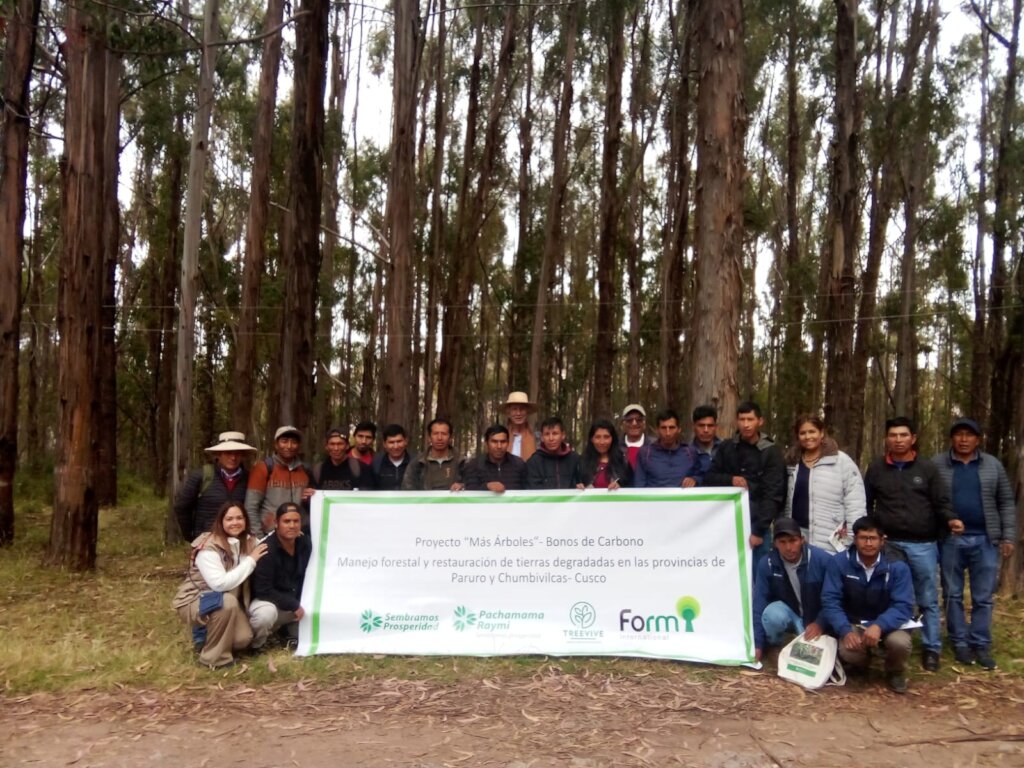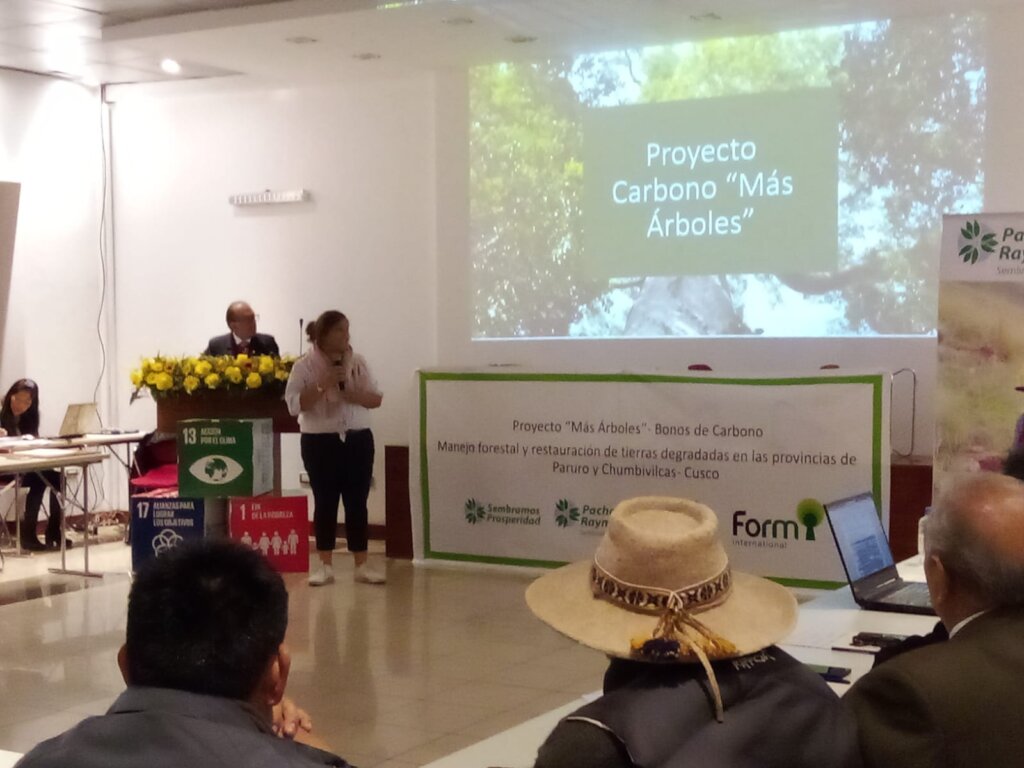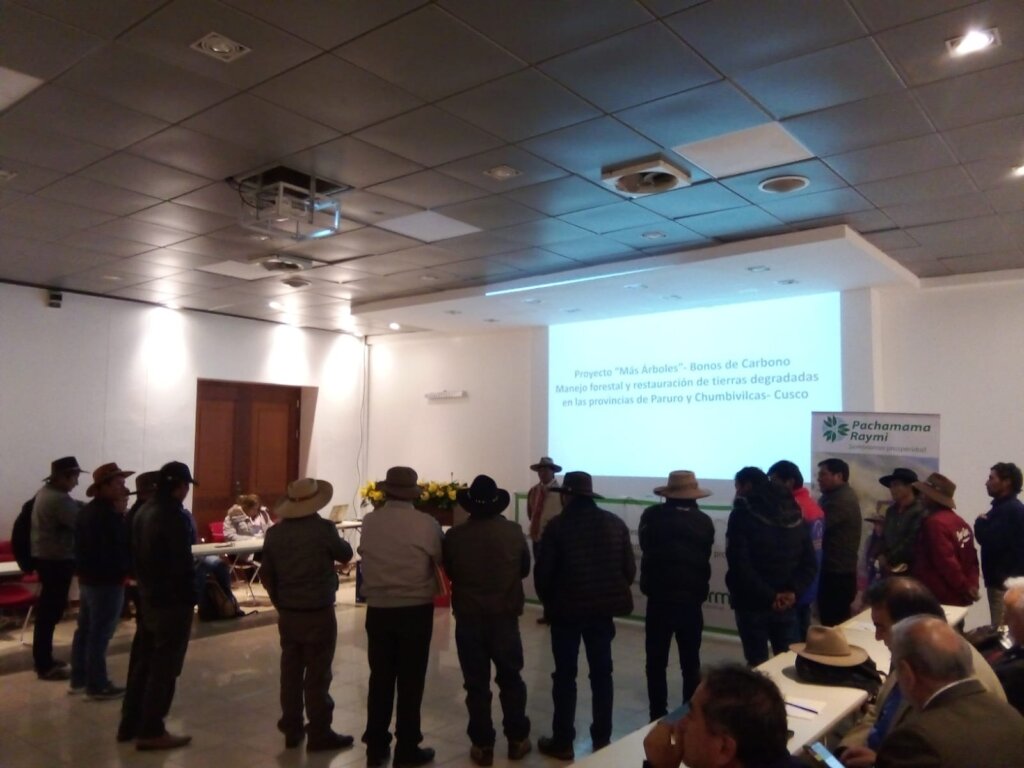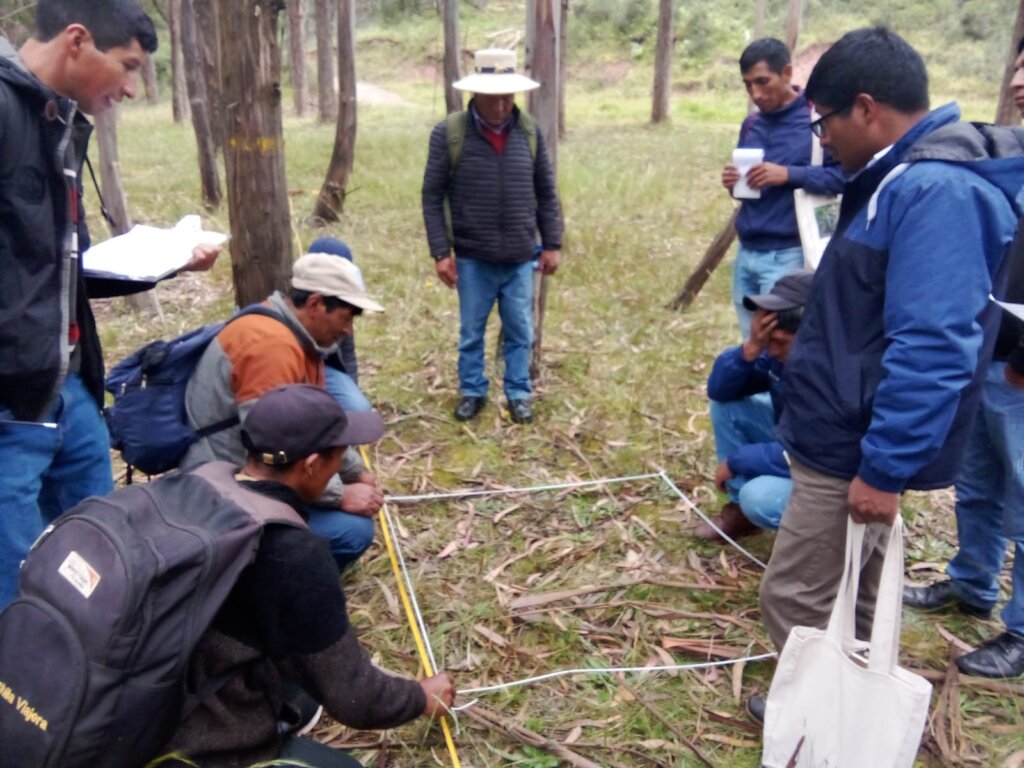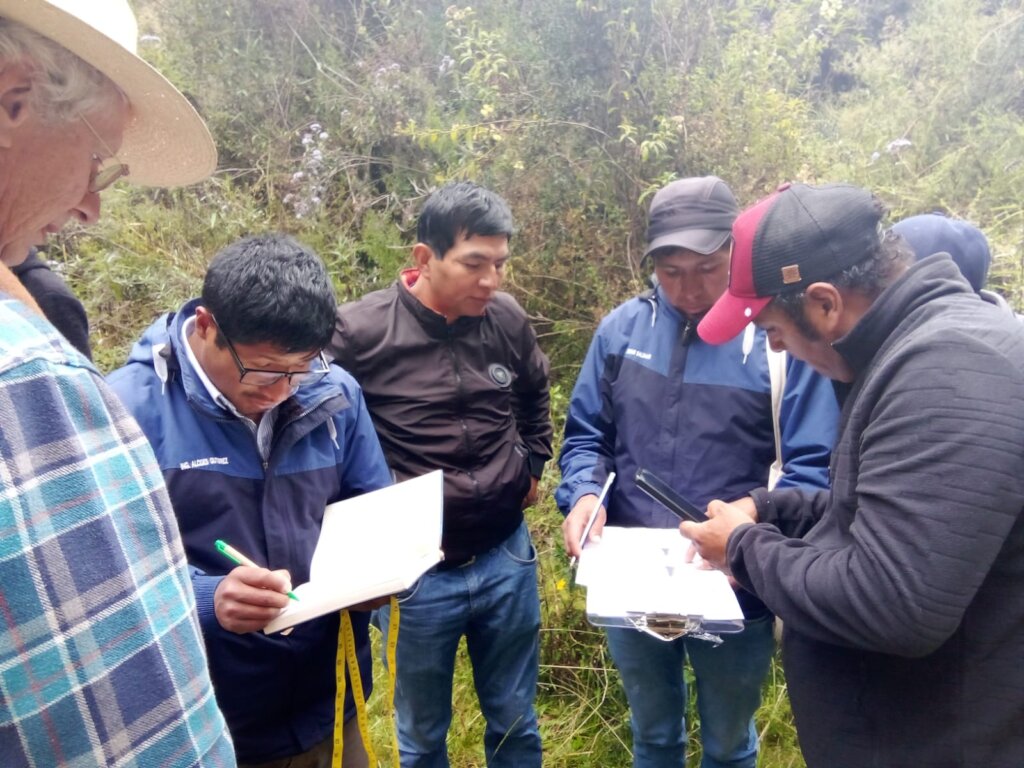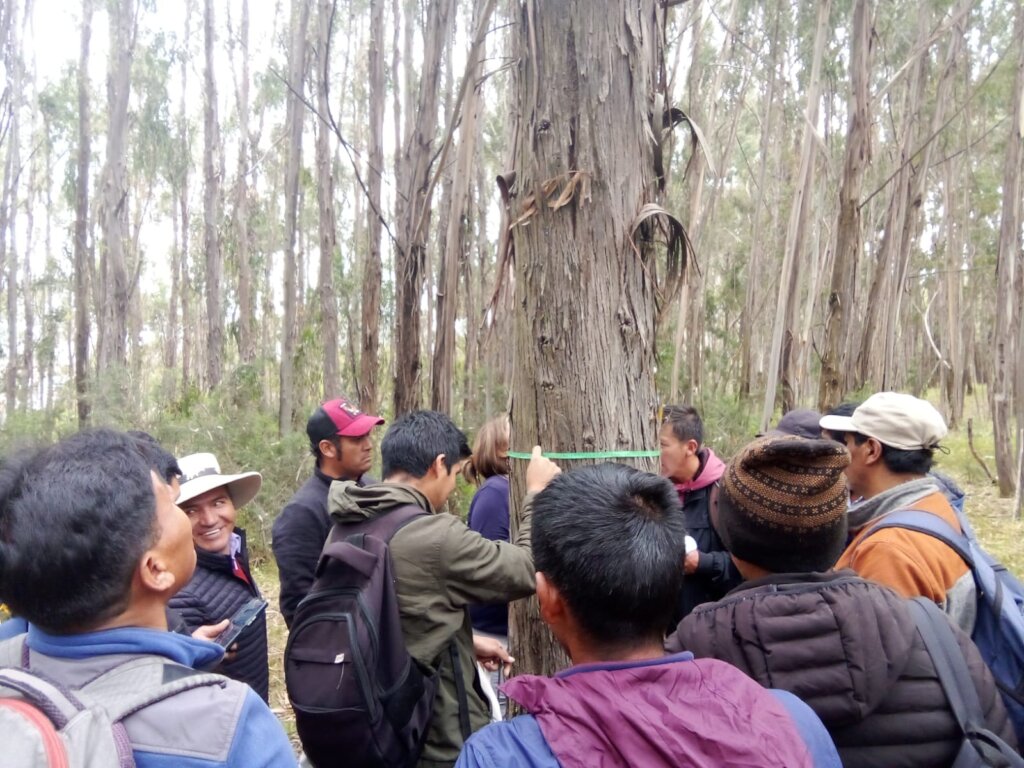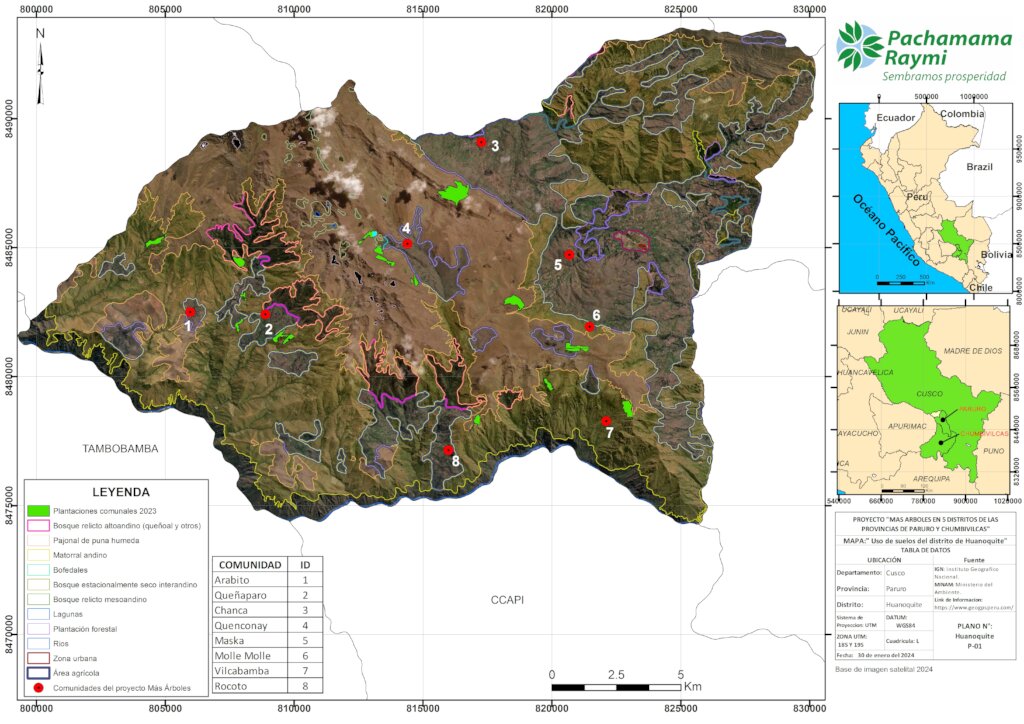By Maria Varela | Project Leader
Project "More Trees"- Carbon Credits
Phase: Research
Dear Donors,
Research " this has been the key word for the project.
All these months we have been working on the design and execution of the necessary studies to meet the requirements of the international standard of Plan Vivo.
The Mas Árboles- Carbon Bonds project, a pioneer in the Southern Sierra of the Peruvian Andes.
Its objective: "To achieve the prosperity of peasant families and the recovery of natural resources, through the establishment of forest plantations in the province of Paruro, which generate ecosystem goods and services for peasant families and communities. That is, improvements in soil fertility, water harvesting, fungi, carbon bonds, wood, among others”.
Intervention areas and participating communities of the More Trees Project
The Mas Árboles project has 3 components, by 2024
Together with the 35 peasant communities we are working on the development of the following studies:
Protection of archaeological areas and Inca roads
Having in mind that the project is being carried out in the region of Cusco- it has in mind multiple areas declared as cultural heritage - which require measures to prevent, avoid, control, reduce and mitigate the possible negative impacts on pre-Hispanic, historical or paleontological vestiges and other assets of the Nation’s Cultural Heritage. Our project is taking all the precautions to protect such areas. Even though our project is considered low impact.
In this regard, we have asked the Ministry of Culture to establish an inter-institutional alliance within the framework of the development of the Mas Arboles project.
Social and EconomicStudy:
It aims to identify the relevant socioeconomic parameters that can facilitate or hinder the development and success of the project. Additionally, it will raise the issues that should receive special attention regarding the initial forecasts to consider at the beginning of the implementation of the Project . These will allow us to make timely, better informed decisions on important issues such as value chains, social and economic organization and interconnectivity and the existence of risks, among others.
The field team interviewed more than 400 families among the 35 peasant communities that make up the project. It has been hard work of a lot of commitment to achieve this in a short period of time.
The team is now in the process of tabulation and data analysis.
Plantation Management Plan:
Is the planning document, which describes the characteristics of forest resources that will be used and conserved within a given area, as well as the activities that the community must carry out to ensure the correct use of these resources. Consider pruning, thinning, fertilization, baseline, monitoring, soil sampling, among others.
Baseline of Planting Areas:
The baseline is the current state of the area in which a project will be developed. Includes a detailed description of the socio-environmental attributes or characteristics of the project area, including natural hazards that could affect its viability.
BaselineofPlantingAreas:
The Geographic Information System (GIS) team has done a lot of work, producing different types of maps of the project area:
•Preliminary map of georeferenced areas
•Map of Water Bodies
•Map of Conservation Areas
•Map of Topography
•Map of fragile ecosystems
•Map of water bodies and water quality
Areas of conservation:
These are areas that conserve wildlife for the benefit of rural populations, which, through a management plan can make traditional use and sustainable use of the area’s natural resources.
Community Life Plan:
is to empower rural communities to protect and manage their natural resources. Each participant in a program develops its own Communal Plan.
Multi-stakeholder meeting of the “Mas Árboles” project.
The presentation of the project "More Trees"- Carbon Credits, had more than 60 participants, including the owners of the project Peasant Communities, represented by their presidents, treasurers and secretaries, representatives of the District Municipalities of Huanoquite, Ccapi, Omacha, Accha and Ccapacmarca.
In the institutional environment it counted with the participation of officials and servants of the Technical Forest Administration and Wildlife Cusco SERFOR, Institute of Water Management and Environment "IMA", of the Regional Government Environmental Management, Ministry of Culture MINCUL and National Superintendence of Public Records SUNARP, who are committed to the technical assistance needed to achieve the project’s objectives.
Participants had the opportunity to express their views on the project, in a cordial dialogue of consensus and construction for a better future.
Team Pachamama Raymi
Project reports on GlobalGiving are posted directly to globalgiving.org by Project Leaders as they are completed, generally every 3-4 months. To protect the integrity of these documents, GlobalGiving does not alter them; therefore you may find some language or formatting issues.
If you donate to this project or have donated to this project, you can receive an email when this project posts a report. You can also subscribe for reports without donating.
Support this important cause by creating a personalized fundraising page.
Start a Fundraiser